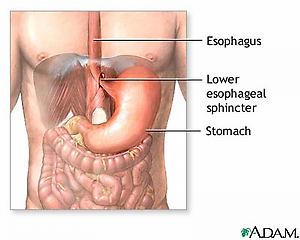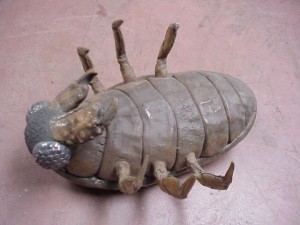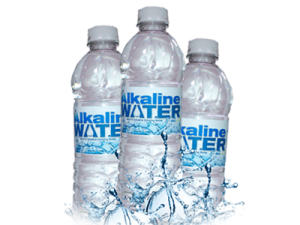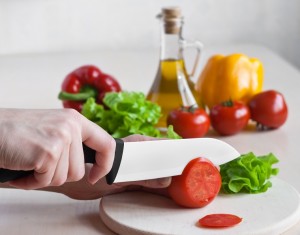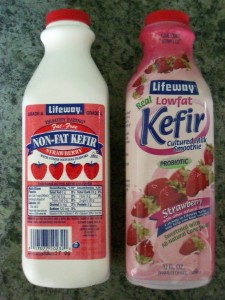Diarrhea and Constipation Explained
When waste material travels through your digestive tract too quickly for sufficient water absorption to occur, your stools will be runny and more frequent than normal.
Three main causes of diarrhea are:
- Undesirable microorganisms
- Food intolerances (like lactose intolerance)
- Stress
In the first two cases listed above, it makes sense that your body would want things to move quickly through your system; your body doesn't want to spend time digesting foods that it can't properly extract nutrients from or that are laced with disease-causing microbes.
Stress can cause transit time to shorten by messing with your enteric nervous system; please recall that your enteric nervous system controls the reflex contractions that mark "haustral churning." Your enteric nervous system is a part of your autonomic nervous system, and your autonomic nervous system regulates your physiological responses to emotional and physical stress.
When waste material travels through your colon more slowly than it should, enough water is extracted from your waste material to cause your stools to become uncomfortably hard.
Five main causes of constipation are:
- Eating sporadically, or eating meals that are too small to elicit mass peristalsis.
- Not going when you feel an urge to go.
- Lack of a healthy intestinal lining that is capable of producing enough mucous to properly lubricate your stools (vitamin A deficiency is a potential cause of this situation).
- Insufficient intake of water, water-rich foods, and/or fiber-rich foods.
- Stress.
Steps You Can Take To Have Healthy Bowel Movements
Eat substantial meals; don't nibble on small amounts throughout the day.
Each time you eat a substantial meal, you stimulate stretch receptors in your stomach that are responsible for triggering normal and mass peristaltic waves throughout your small and large intestines. These natural contractile waves promote regular movement of waste material through your colon and rectum.
Also, eating substantial meals allows significant boluses (roundish masses) of waste materials to travel together through your colon, turn into well formed stools, and get eliminated from your body in an efficient manner.
Don't suppress the desire to go.
If you regularly suppress the urge to have a bowel movement, waste materials spend more time than is optimal in your colon, causing excessive dehydration of these materials and formation of hard stools.
Ensure adequate intake of water and/or water-rich foods.
Water helps to move waste materials along, and is absorbed throughout the entire length of your colon. Insufficient water intake can cause stools to form far before waste materials reach your rectal pouch, which can cause constipation.
This doesn't necessarily mean that you need to drink several glasses of water per day. If you eat plenty of water-rich plant foods, then you can rely on your sense of thirst to dictate how much water to drink.
Eat fiber-rich foods regularly.
Fiber adds bulk to the boluses of waste material that travel through your large intestine, and this bulk is essential to your colon's ability to turn waste materials into well formed stools.
A diet that is rich in vegetables, fruits, legumes, and whole grains ensures high fiber intake.
Ensure optimal vitamin D status.
Optimal vitamin D status significantly lowers your risk of developing all types of cancer, including colorectal cancer.
To learn more about how to make sure your body is getting enough vitamin D, have a look at the following:
How to Make Sure that You Are Getting Enough Vitamin D for Your Best Health
Ensure adequate vitamin A status.
As mentioned earlier, glands that line the mucosal lining of your colon are responsible for releasing mucous that is needed to lubricate your feces; vitamin A is needed to maintain the health of these specialized cells that release mucous.
It's best to ensure adequate vitamin A status by eating healthy foods that contain vitamin A.
Ensure adequate intake of healthy fats.
All of your cells, including those of your large intestine and nervous system, require a constant influx of undamaged fatty acids and cholesterol to remain fully functional. If you don't ensure adequate intake of healthy fats, your nervous system and the smooth muscles that surround your digestive passageway - both of which are responsible for creating peristaltic waves throughout your digestive tract - may deteriorate in function.
Also, intake of healthy fats is necessary for optimal absorption of fat-soluble vitamin A, which, as mentioned above, is critical to building and maintaining the mucosal lining of your colon.
Healthy foods that are rich in healthy fats include: avocados, organic eggs, olives, extra-virgin olive oil, coconut oil, coconuts, raw nuts, raw seeds, and cold-water fish.
Build and maintain a population of friendly bacteria in your digestive tract.
Large populations of friendly bacteria (kefir, yogurt) can keep your digestive tract clean and healthy by:
- Promoting optimal digestion, thereby preventing build-up of toxic waste materials.
- Taking up space and resources, thereby helping to prevent infection by harmful bacteria, fungi, and parasites.
Work at feeling emotionally balanced.
Stress can interfere with your ability to clean your colon through its effect on your enteric nervous system (your gut is your second brain). I can state with certainty that the majority of people who have come to me over the years with a chronic colon-related health issue have had significant anxiety in their lives.
If you have a challenge with colon and rectal health, I encourage you to take a careful look at ways that you can minimize the amount of stress and anxiety you experience.


